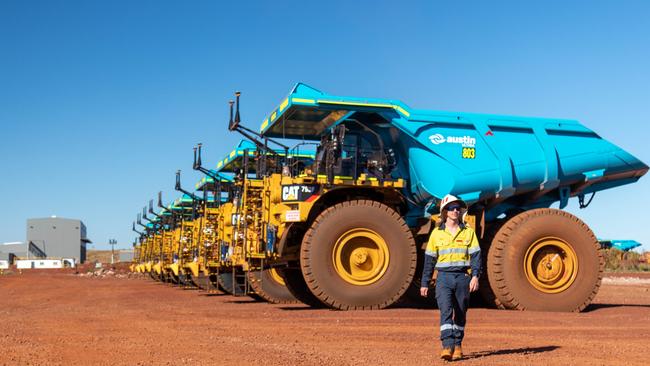
Thanks to China and its insatiable demand for iron ore – and met coal to turn it into steel and CO2 and which BHP has but Rio doesn’t – the global mining industry is now comprised of BHP and Rio and ‘everybody else’, including former equals like South Africa’s Anglo American.
The ‘everybody else’ does include two others, also riding the China iron ore boom. They are Brazil’s Vale which has BHP/ Rio quality ore but is an entrenched environmental and operational disaster; and Andrew ‘Twiggy’ Forrest’s Fortescue which does not have BHP/Rio quality ore but is riding the boom’s crushing of the quality price differential.
If Vale did ever get its act together – it won’t – it would not only slice into BHP and Rio’s profits; it would devastate Fortescue’s.
What’s gone largely unrecognised is the way BHP’s twin moves to sell its oil and gas operations to Woodside and to collapse its 20-year old dual-listing structure back into a unified and importantly Australian-based single entity puts Rio at a significant disadvantage.
Further, it is a disadvantage that Rio can’t easily address, even if its London-based board of directors could even contemplate the challenge.

It would require Rio to follow BHP exactly in collapsing its own dual-listed structure, by eliminating the UK-based ‘Rio PLC company’ and having just the Aussie ‘Rio Ltd company’. That is to say, to quite deliberately take itself out of the London Footsie Index and join BHP in the Aussie ASX Index.
There is no way a London board is going to get its mind around that – directly confronting UK institutional investor mandates. There is no way a London board is going to walk away from ‘The City’. That is made even more emphatic by all the other things that would have to flow from locating downunder: having an Australian-based board and executive management.
This would require a massive functional, cultural and mind-set turnaround from what Rio’s been doing for the past 25 years, since it essentially conned then PM Paul Keating into letting it centralise in London – understandable, as Keating never really understood business.
And that has been, plain and simple, Rio basically closing everything down downunder except the mines. And which, apart from anything else, led directly to the Juukan Gorge caves debacle. Even in our wired real-time 21st century world, it’s hard to understand these things sitting in a plush London club.

The critical driver in all this is Australia’s franking credits and their leveraged value to – and only to, Australian - institutional investors. It all turns on where the profits are, where the tax is paid, and so the size of the franking pool - in both cases, China continuing to permit, Australia.
BHP has the much bigger Australian insto holder base. It can put much more of its franking credits to direct effective use, either in dividends or capital returns.
But even BHP has increasingly had to ‘waste’ them by paying dividends to the PLC company and on to British shareholders. It has been even worse for Rio with a much biggest disconnect between the Australian profit generation and the majority UK holder base.
Now yes, a unified BHP would still ‘waste’ credits, paying dividends directly to non-Aussie holders, but it could minimise that through capital returns.
It must mean BHP will build a significant advantage over Rio in cost of equity capital, notwithstanding Rio’s position in the Footsie.
Add the strategic and operational advantages of an Australian base, and the advantage gets even greater.





BHP has not only embarked on a course to really make itself the ‘Big (mining) Australian’ again, but to gain a huge – and arguably unassailable - strategic and operating advantage over its only peer in the global mining space, Rio Tinto.